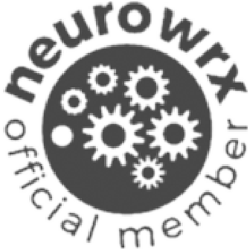
5 “Off-Label” Signs You May Be a Woman on the Spectrum
“Masking is often a well-developed skill in females on the spectrum, due to stereotypes of how women are expected to behave.”
Your support strengthens the programs that help autistic professionals to build meaningful, long-term careers at Aspiritech and beyond.
Every donation makes a difference in the lives of our team and community members.


Your support strengthens the programs that help autistic professionals to build meaningful, long-term careers at Aspiritech and beyond.
Every donation makes a difference in the lives of our team and community members.
Our neurodiversity resource library is here for you to learn more about celebrating neurodiversity and supporting mental health, both in your life and in the workplace.

“Masking is often a well-developed skill in females on the spectrum, due to stereotypes of how women are expected to behave.”

“Self-advocating involves a clear, strong mindset. All I know is that if I used to avoid raising my hand in class and can have that mindset now, anyone can.”

Accountability is the line between a fair reason and an excuse. True empathy means caring about how your actions affect others, without expecting a free pass.

The real questions to be asked are: How about we question the pathological demand for unchallenged compliance and control over others? Why the perceptual bias?

What are some of your favorite things about being neurodivergent?

The medical model conjures up a great deal of fear. It is hyper-focused on what’s wrong. When that’s all people see, of course telling people you’re neurodivergent comes with reluctance.

When you are wired for truth yet societal traditions model repressing truth or even marginalizing individuals for speaking it, then it is no surprise that you wouldn’t want to get out of bed to meet the world.

“Not liking change” is an ambiguous statement in and of itself because, in truth, a lot of people don’t necessarily like or immediately adapt well to change — especially changes in routine — whether they are neurodivergent or not.

It’s important to remember that the allopathic medical model was not designed to cater to the needs of neurodivergent individuals who may express and process/experience pain differently than neurotypical individuals.

When you defy convention, sometimes people and society at large present antagonistic forces that don’t appreciate what you bring and need.

“Masking is often a well-developed skill in females on the spectrum, due to stereotypes of how women are expected to behave.”

“Self-advocating involves a clear, strong mindset. All I know is that if I used to avoid raising my hand in class and can have that mindset now, anyone can.”

Accountability is the line between a fair reason and an excuse. True empathy means caring about how your actions affect others, without expecting a free pass.

The real questions to be asked are: How about we question the pathological demand for unchallenged compliance and control over others? Why the perceptual bias?


The medical model conjures up a great deal of fear. It is hyper-focused on what’s wrong. When that’s all people see, of course telling people you’re neurodivergent comes with reluctance.

When you are wired for truth yet societal traditions model repressing truth or even marginalizing individuals for speaking it, then it is no surprise that you wouldn’t want to get out of bed to meet the world.

“Not liking change” is an ambiguous statement in and of itself because, in truth, a lot of people don’t necessarily like or immediately adapt well to change — especially changes in routine — whether they are neurodivergent or not.

It’s important to remember that the allopathic medical model was not designed to cater to the needs of neurodivergent individuals who may express and process/experience pain differently than neurotypical individuals.

When you defy convention, sometimes people and society at large present antagonistic forces that don’t appreciate what you bring and need.
“We hired them for the mission. We’ve kept them because they are excellent.”



Aspiritech, NFP